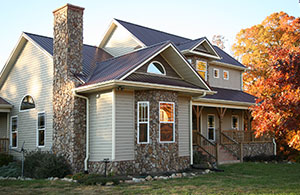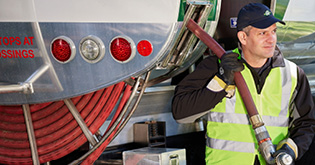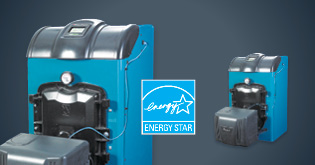
Generators: Choosing the right one for your home.
 A backup generator is an invaluable
item that everyone should have in their home but before purchasing one, it pays to learn about the two types of generators available and figure out which is the right one for your specific needs.
A backup generator is an invaluable
item that everyone should have in their home but before purchasing one, it pays to learn about the two types of generators available and figure out which is the right one for your specific needs.
Standby generators.
Permanently installed outside your home, a standby generator normally runs on propane or natural gas. If you lose power, the generator switches on automatically and provides electricity within seconds. While standby generators can be costly, if you live in an ice storm, hurricane or flood-prone area, they are a smart and worthwhile investment.
Standby generator installation:
Installing standby generators normally involves permits, knowledge of building codes, and expert skill in electrical and plumbing work (as well as gas line work, if your power source is natural gas). This is why installation should always be handled professionally.
Standby generator benefits:
- Powers all essential appliances to keep life running as normal, like your refrigerator, cooking appliances, furnace, medical devices, and necessary business equipment. Prevents hundreds of dollars in spoiled food wastage, while keeping your home warm and comfortable.
- Prevents frozen pipes and basement flooding. Below-freezing weather and prolonged loss of power can lead to frozen pipes that may cause thousands, or tens of thousands, of dollars in damage.
- Supplies power to sump pumps, to prevent flooding.
- Adds value to your home particularly if you live in an extreme weather climate with frequent hurricanes, ice storms and flooding.
- Provides total peace of mind. Since losing power isn’t just inconvenient, it can be stressful, a standby generator provides the comfort and safety of always providing light, heat, use of your favorite entertainment devices and any medical devices that require power during an outage.
Portable generators.
These generators usually run on gasoline or diesel, though natural gas and propane types are also available. Mobility and lower cost make portable generators an ideal option for homes that only rarely lose power.
Portable generator benefits:
- Substantially less expensive than a standby generator.
- Easy portability as the smaller size lets you move it wherever you need to, e.g., emergency backup at home, on camping trips, etc.
- By having a generator transfer switch also installed, a portable generator can be used to supply power safely to a select number of items in your home. Powering your home without a transfer switch is NOT recommended. (see safety issues below)
Portable generator safety issues.
You must be aware of the following safety issues BEFORE purchasing a portable generator:
- It must remain outside in a dry area, but never in your home or any enclosed or partially-enclosed spaces such as a basement, garage, or crawl space because it emits carbon monoxide (CO) while it’s running, as well as the risk of electrocution and fire.
- Never plug a portable generator directly into the wall outlet (known as backfeeding) as this can send a power surge beyond your house, which could kill or injure utility workers or anyone else served by the same utility transformer.
Ultimately, your generator purchase decision will probably be based on your geographical location, size of your home and number, or type, of appliances and equipment that require power.
Similar to purchasing other home service equipment, like heating or cooling systems, it pays to talk with a professional to help you decide which generator is right for you and your home.



.jpg)
.jpg?sfvrsn=38eb02bb_5)